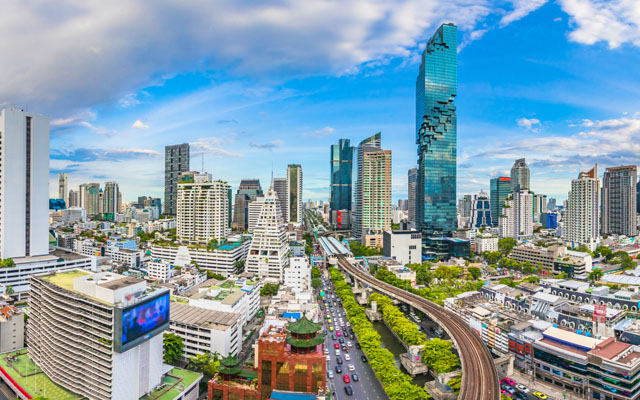The Thai government’s decision to charge international travellers an entry fee of up to 300 baht (US$9) from this June has attracted mixed views from the country’s travel and tourism players.
Dan Fraser, founder of destination management and tour company, Smiling Albino, believes the fee is justifiable.

“It is reasonable to have a tax on inbound arrivals, many countries do it, and it is almost always built into the cost of an airline ticket or similar. I think if we look into the data, we’ll see that studies probably review it has almost zero net effect on tourism members. Much like the cost of expressways, people need to get places, and the cost probably doesn’t deter participation,” he told TTG Asia.
Fraser added that the entry fee is a way for Thailand to boost tourism revenue after years of pandemic struggles.
He said: “Introducing fees like this is a reasonable way to bring in some additional revenue on a per-user basis rather than an additional tax on the population.
“Short-term or long-term, it will have zero effect on people’s decisions to travel to Thailand, and very quickly, people will forget that there is even a fee, as it is not visible.”
On the other hand, Hat Yai Songkhla Hotels Association’s president Sitthiphong Sitthiphatprapha had stated in the Bangkok Post that the entry fee could impede tourists, especially those from Malaysia.
“A family of four would have to pay 600 baht to enter by land, which would result in a longer decision-making period for travelling families. Although an exemption has been made for those holding border passes, 80 per cent of arrivals over the border are using their passports,” he said.
Reserving his judgment for now, Dieter Ruckenbauer, general manager, Le Méridien Bangkok, wants clarity on how the collected fees will be spent.
“If the funds are used to enhance the tourism industry, such as the development of local attractions, investment in tourist services, and business support, then it could be a good idea. But we need to wait for the government to reveal its budget and spending information to the public before we can make a judgment,” Ruckenbauer stated.
Dirk De Cuyper, CEO of S Hotels & Resorts, suggested identifying this tourism fee as a green tax or development tax to reverse the negative narrative.
“Using taxes to enhance sustainability is something we should all get behind and get used to. However, there should be a transparent approach which shows how these funds will support the development of tourist destinations and encourage a shift towards longer-staying, higher-spending guests,” he added.
In earlier news reports, Phiphat Ratchakitprakarn, minister for tourism and sport, justified the charge, saying that the fees would be used to support the care of tourists while in the country. The government expects to collect up to US$115 million this year from the tourism fee.
The minister cited reports of the two-year period between 2017 and 2019, when tourists’ use of public hospitals cost the country 300 to 400 million baht.
The process of collection worries a Bangkok-based industry veteran, who leads one of the region’s top DMCs. “I don’t see how it can be levied practically. The only way for it to be collected efficiently is for it to be done by the airlines. But, as the government has said they won’t charge Thais and residents with work permits when they fly into the country, it isn’t reasonable to expect carriers to carry out this level of bureaucracy,” he commented.




















